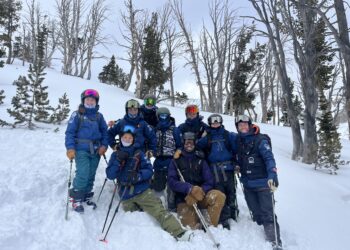Deadline for volunteers Aug. 9
By Joseph T. O’Connor EBS Managing Editor
A sobering study published in the journal Science in February found that nearly nine million tons of plastic lands in the world’s oceans each year. Much of it travels by way of creeks leading to rivers, which dump their contents into bays and gulfs. And much of it takes the form of tiny plastic particles.
In an effort to head off these pollutants, Bozeman-based nonprofit Adventurers and Scientists for Conservation is expanding its own worldwide marine and freshwater studies this fall to include the Gallatin River watershed.
By focusing its five-year Microplastics Initiative on the Gallatin and its tributaries, ASC hopes to reduce the amount of microplastics – particles smaller than 5 millimeters in diameter – that seep into local rivers.
“Microplastics attract other toxins including DDT, BPA and pesticides,” said ASC’s founder and executive director Gregg Treinish. “When ingested by aquatic life, the concentration of the toxins magnifies as they move up the food chain.”
Sources of microplastics include nylon fibers that washing machine filters don’t catch; broken-down plastic bags and bottles; and microbeads from face wash and toothpaste that enter drains and eventually waterways.
ASC will train 50-75 volunteers to collect the first water samples beginning in early September, and is accepting applications this summer from paddlers, anglers and backcountry hikers who are passionate about area rivers. The deadline for volunteer applications is Aug. 9.
Together with partners and sponsors including the Gallatin River Task Force and the Yellowstone Club Community Foundation, ASC is tackling a monumental problem, and beginning here at home.
This story was updated from one originally published in the summer 2015 edition of Mountain Outlaw magazine.













